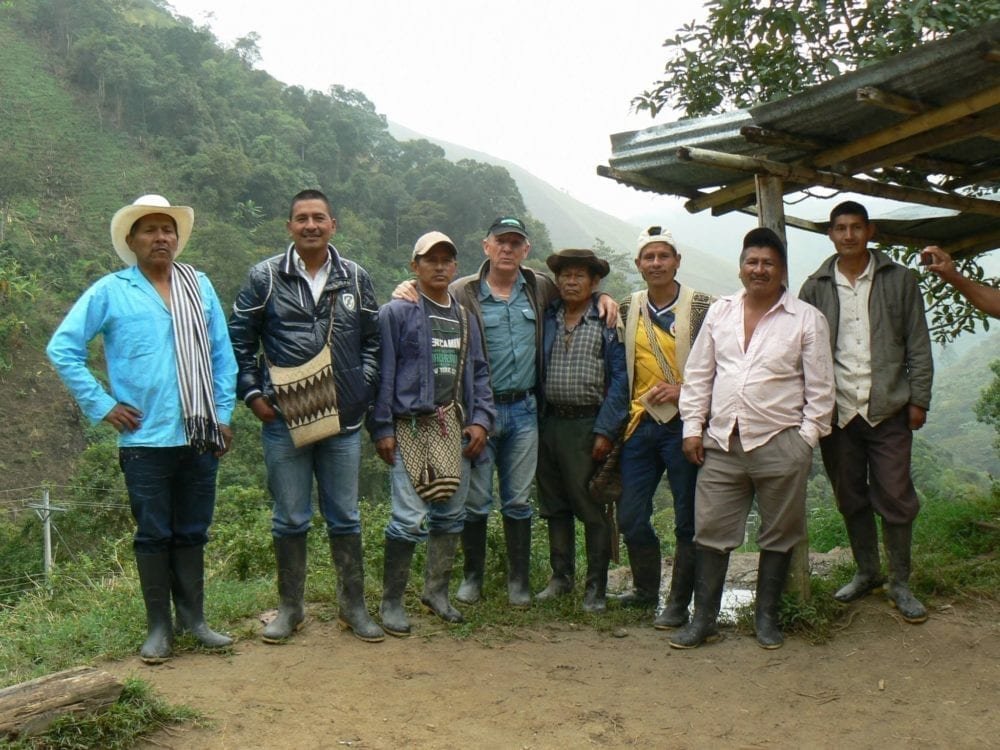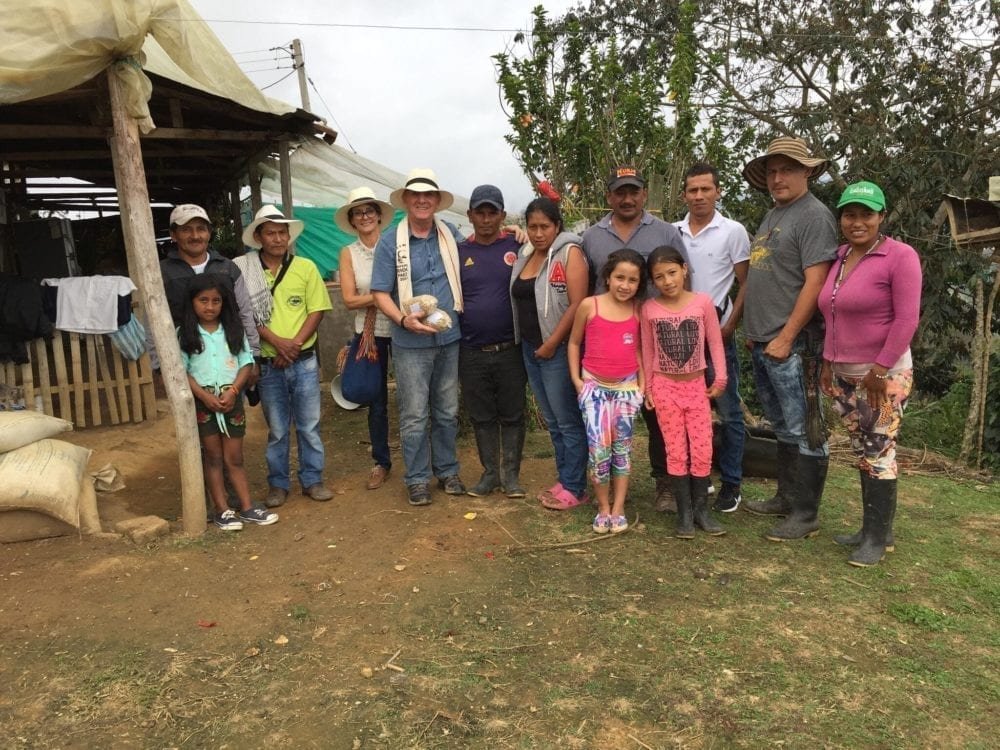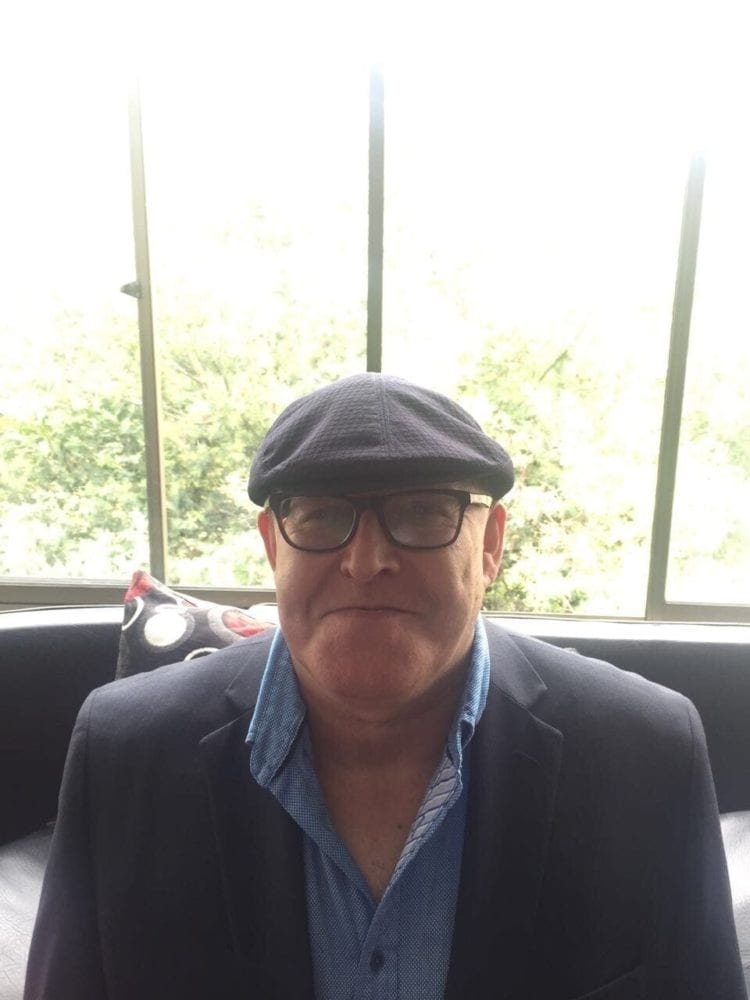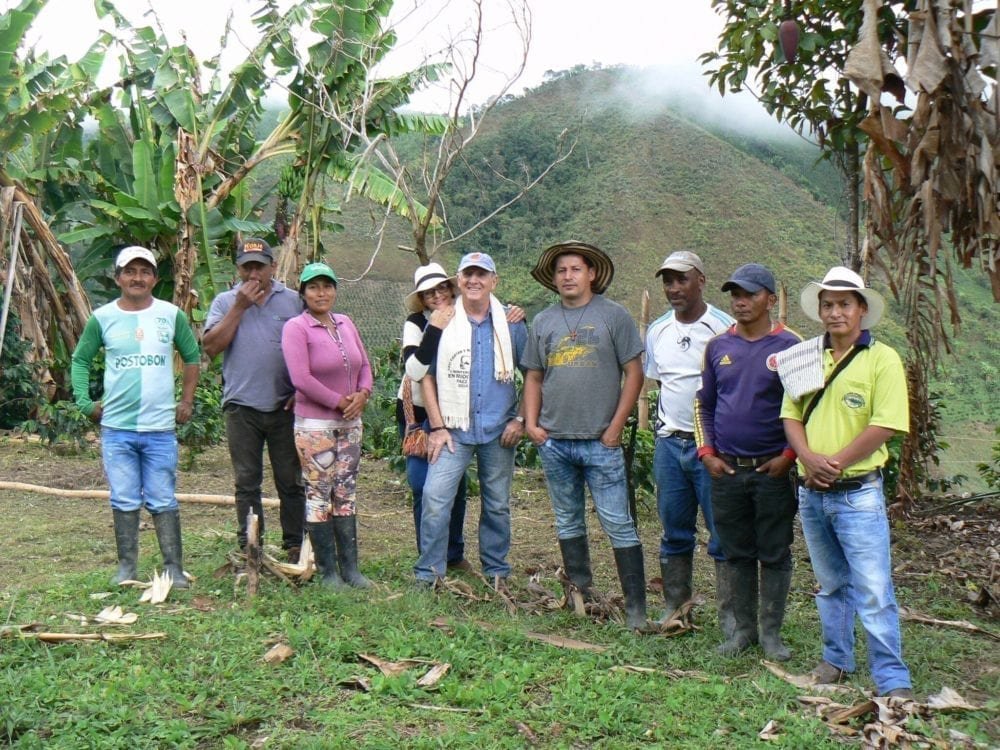This article first appeared in our spring ’18 issue of MyGreenPod Magazine, The Conscious Revolution, distributed with the Guardian on 04 May 2018. Click here to subscribe to our digital edition and get each issue delivered straight to your inbox
Our growing demand for coffee – particularly speciality coffees – should of course be a good thing for coffee farmers and their communities. But while organisations like Fairtrade are a step in the right direction, the International Coffee Organization recently warned that growers in many parts of the world still fail to receive enough money to cover their cost of production. This means coffee’s a long way off being a sustainable commodity, despite being one of the leading performers on commodity markets.
‘We never transport green, unroasted coffee beans’, says Gary Golden, CEO of Not 1 Bean Ltd, a British-based company with a permanent, long-standing presence in Colombia. The company roasts all its coffee in the developing countries it’s grown in – an approach designed to address carbon emissions, farmer poverty and child labour.
The significant extra income and jobs generated by roasting coffee at source remain in the developing countries that grow the coffee, helping to alleviate poverty in coffee-growing communities. ‘This extra income has the knock-on effect of farmers retaining and educating their employees, so they can maximise profits and resources on what are in the main smallholdings’, Gary tells us. ‘Our permanent presence in coffee-growing regions means we are able to guarantee that children are not employed anywhere within our buying chains.’
Transporting roasted beans also means all Not 1 Bean Ltd’s shipping is 20% lighter than conventional coffee cargo, leading to a massive reduction in the number of commercial vessels used – with a corresponding reduction in carbon emissions.
The cost of coffee – coffee is second only to oil when it comes to the world’s most traded commodities, so where do all the profits go?
Defining sustainable coffee
Most coffee brands choose to buy green, unroasted beans from coffee growers and ship them to the west to be roasted. While green beans are cheaper, ethical coffee companies ensure that income from the roasting – which represents 90% of the value in the coffee supply chain – is ploughed back into education, infrastructure and community programmes in the coffee producers’ regions.
‘We encourage this type of operation when it leads to genuine improvements within farming communities’, says Gary. ‘But we believe that directly investing in roasting at source, rather than taking that income away then rerouting part of it to the grower’s community, is more practical than taking the money away and then sending it back.’
Some coffee companies are committed to ensuring a fair price is paid to the coffee farmer, but for Gary the initiatives ‘all seem to revolve around anything other than simply allowing farmers to earn money from roasting their own coffee’. To him it’s as though coffee farm workers are deemed only fit to work in the fields. ‘That’s not something we agree with at all’, Gary tells us. ‘The same knowhow and technology exists in Colombia as it does in California.’
Gary does recognise that some companies genuinely have the interests of the farmer at heart and says Not 1 Bean Ltd is ‘more than happy to work with them’. One such company is The Green Collection, which has a full-time presence across the coffee-growing regions of Colombia to guarantee that children don’t play any part in the coffee production it oversees.
‘The Green Collection pays more to the farmer at the outset and then reinvests a proportion of coffee sales as bonuses directly back to the farmer’, Gary explains. ‘At the end of the day, they are aiming for the same thing that we at Not 1 Bean Ltd are: a sustainable coffee industry with a fairer distribution of the profits.’
If we ever arrive at a commonly accepted blueprint for what ‘sustainable’ is – for coffee and beyond – Gary believes it should be monitored on a permanent basis. ‘In virtually every other industry there are quantifiable procedures in place that verify production process claims have been met, so the consumer can safely assume that each stage of the process has been monitored. For around 20 years I worked in quality assurance and quality control in the oil and gas industry, where virtually every activity was subjected to regular inspection visits. The thought that the end user of a particular item doesn’t have any input until that product lands on their doorstep is unheard of across other industries.’ Gary objects to any arrangement under which there are simply no quality assurance procedures after the initial transaction, other than the sampling of green beans when they arrive at their destination.
Gary suggests marking every bag of coffee with the price paid to the farmer for growing, roasting and packaging it. ‘We’d be happy to adhere to an initiative like this. Or maybe just making it clear on every bag whether the coffee was roasted by the farmer that grew it. Standards like this exist for other products, so why not for coffee and chocolate? The words ‘Estate bottled’ on wine labels inform the buyer that the company that bottled the wine also grew the grapes. It’s applicable in the ‘developed world’, so why not in developing countries?’
Gary remains open to alternative suggestions and says Not 1 Bean is ‘happy to work with other companies’, like The Green Collection, that are working towards real change for coffee farmers. ‘What we can’t do is agree with taking the roasting income and jobs from coffee-farming communities’, he says. ‘That’s a sticking point for us: we just don’t see how denying these profits to the farmers, the very people with the most at stake in the whole process, is ethical or sustainable in the long run. However, we do recognise that a number of different solutions need to be applied: ‘one solution fits all’ isn’t realistic.’
 Play Video about This Rock Might Just Save The World
Play Video about This Rock Might Just Save The World Play Video about Play 2 hours of rock
Play Video about Play 2 hours of rock Play Video about Play 2 hours of brook
Play Video about Play 2 hours of brook Play Video about Play 2 hours of sheep
Play Video about Play 2 hours of sheep














































